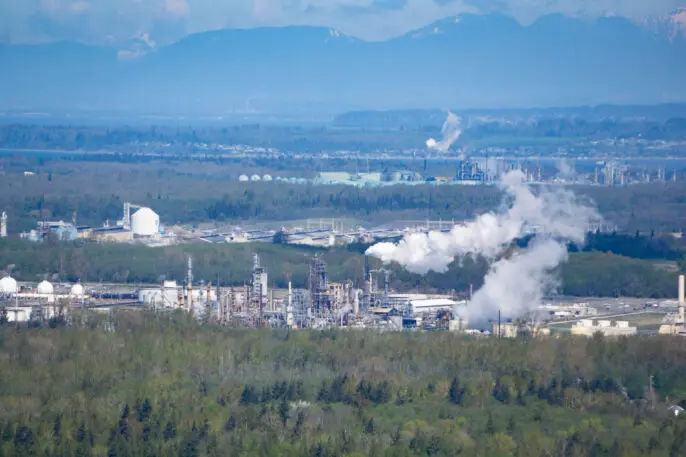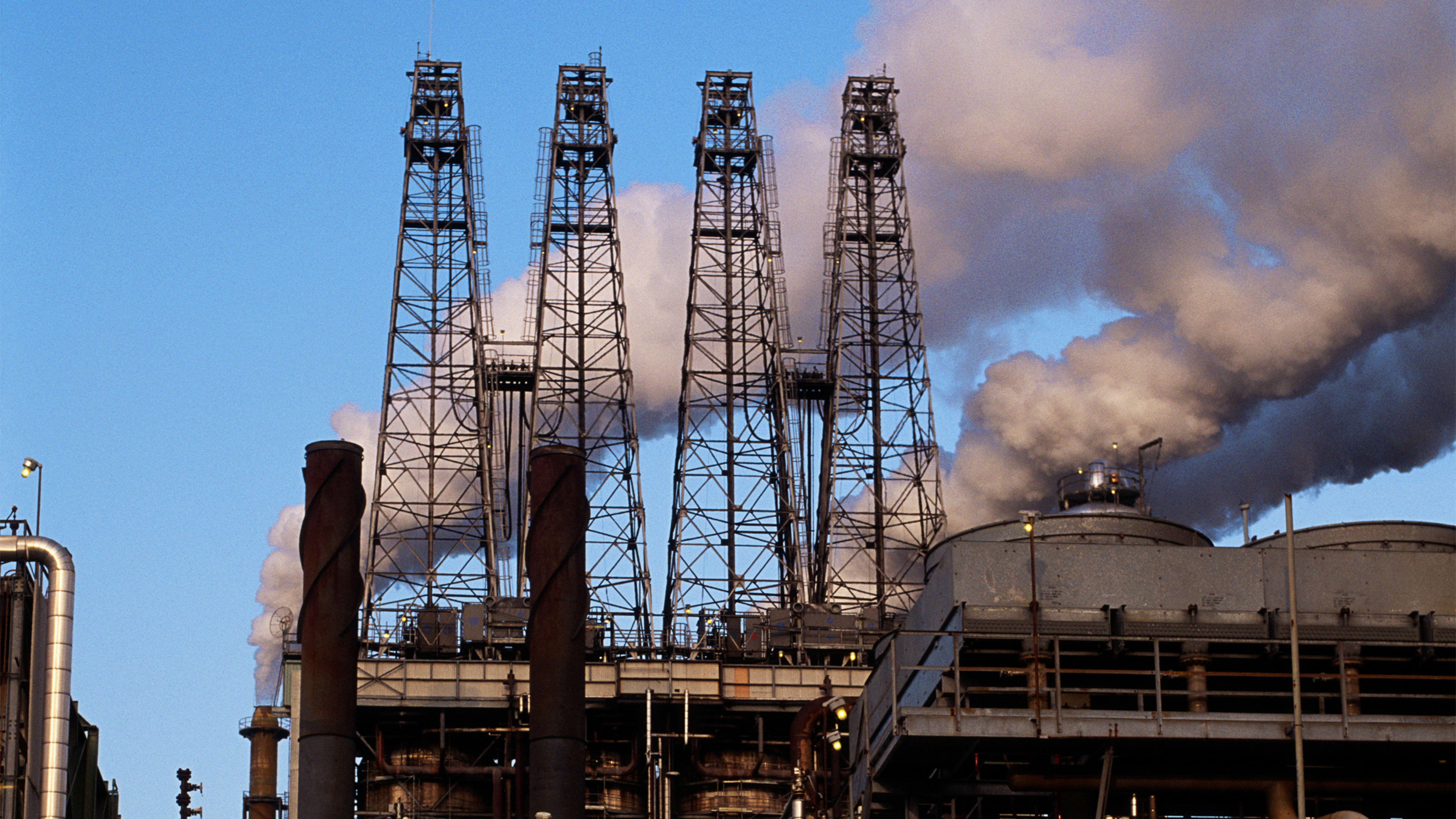In the northwestern corner of Washington State, a deepwater port called Cherry Point has been a hub for the fossil fuel industry for decades. The first oil refinery and pier opened in 1954, along with a pier to export the oil. The industrial zone is now home to another refinery, more piers, oil and gas pipelines, heavy rail lines, and a propane export facility. The industry wants to keep expanding. But in a vote on Tuesday, the local county council is expected to become the first in the country to ban any new fossil infrastructure through changes to the land use code.
“It’s an example of a community coming together and saying, you know what, we’re done with fossil fuel expansion,” says Matt Krogh, a campaign director at the nonprofit Stand.earth, one of the groups advocating for the change. “And we really want to put in place ground rules that let industry know that we’re done with that expansion.”

The new policy, which will ban new fossil fuel refineries, coal plants, piers, wharfs, and “transshipment” facilities for transferring cargo, grew out of an earlier fight that began a decade ago when a new coal terminal was proposed at the site. It would have been the largest of its kind in the country, increasing pollution from coal trains and ships in the area. The community resisted the project, which was eventually killed. Then the fossil fuel industry proposed a new waystation for coal, oil, and gas exports to Asia that would have doubled emissions in the state. Advocates fought for a temporary moratorium on new construction. But without the new, broader policy in place, more proposals would likely continue in the future.
As markets shift—China continues to build large numbers of coal power plants, for example, even as coal is declining in the U.S.—this part of Washington, Whatcom County, happens to be perfectly positioned for exporting. “Producers are looking for ways to get their product to market because [coal use] is dwindling in the U.S. and Canada, and they’re overproducing,” says Krogh. “If you take a look at where [fossil fuel] deposits are, the shortest, fastest route to a Pacific port that can then get those products to the most likely market—Japan, Korea, China, maybe even India—is through my backyard.”
If new infrastructure can’t be built at Cherry Point, the industry may try to move to other areas. But the organizers say that the new policy can be replicated by other local governments, such as Skagit County, the county directly to the south. If it’s not possible to build on the West Coast, companies may turn to the Gulf Coast, but that will add costs. (Some community members in the Gulf Coast also want to ban new projects.) “You’re going to add days and dollars to every barrel that would get exported if they want to get to the same markets in Asia,” Krogh says. If companies can’t expand, and as potential new projects become more uncertain, he says, they may struggle to get investment “and they’ll start to either find new business models or contract or go away.”
Over the last several years, the fossil fuel industry has spent hundreds of thousands of dollars in local elections to back candidates that would support new projects, says Krogh. Despite that, the vote is expected to succeed.
Recognize your brand’s excellence by applying to this year’s Brands That Matter Awards before the early-rate deadline, May 3.
